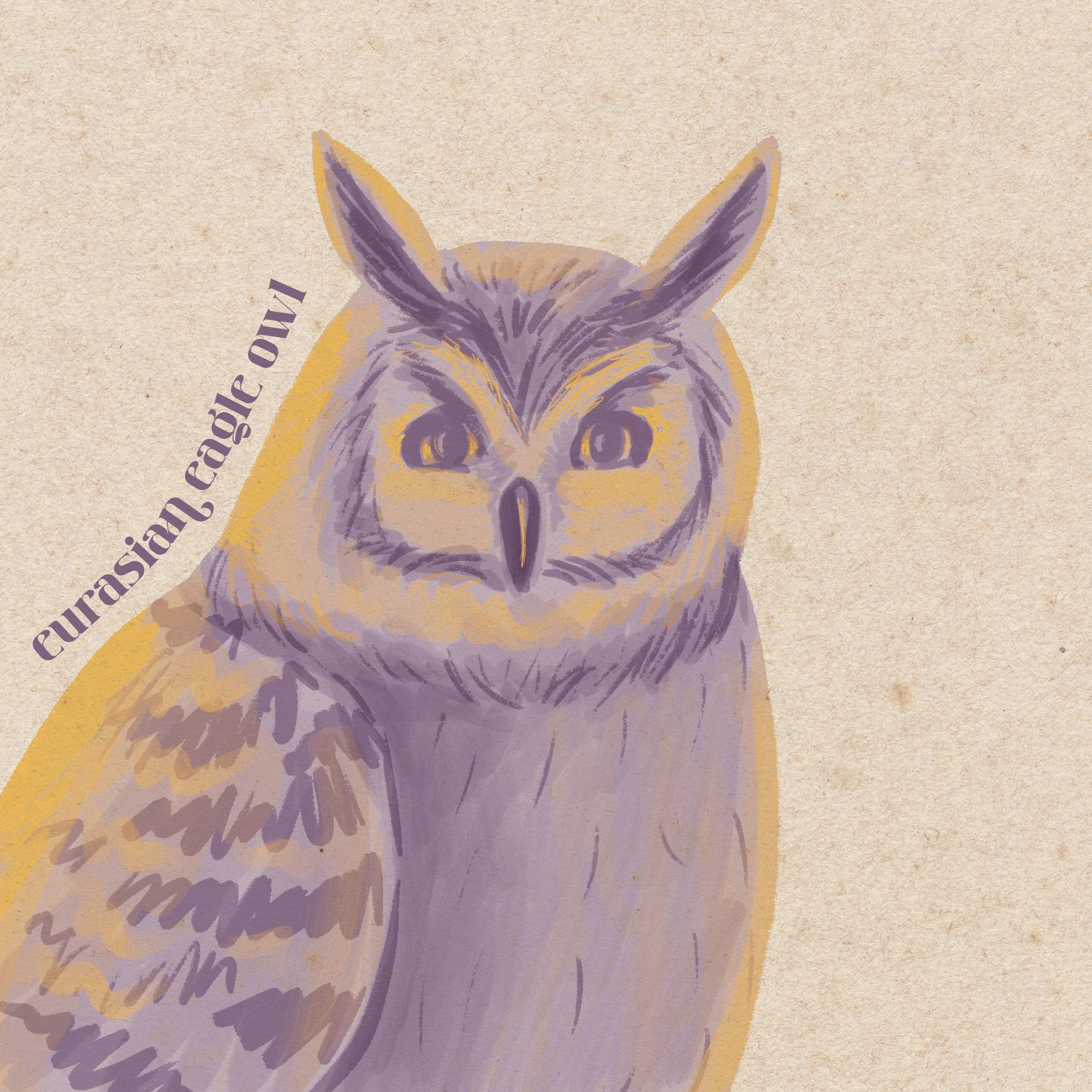Dark forests and notable trees (Link Roundup: May 9, 2023)
Here's some stuff I've enjoyed reading, playing, and listening to lately.

Alright, I figured it was time for another link roundup! Here's some stuff I've enjoyed reading, playing, and listening to lately. Also, please enjoy a drawing of an Eurasian eagle-owl. I forgot the hyphen in “eagle-owl” and was too lazy to fix it and re-export it, so here we are with a typo’d piece of art.
Paranormal
Liminal Ecology and the Paranormal by Jeremy Puma
This post takes permaculture site analysis and applies it to paranormal investigation and research. It's got some awesome, though-provoking tidbits, like how you can't expect to understand the ghosts of humans without also understanding ghosts of flies, trees, moss, etc.
Fairies, men in black, and out-of-date clothes
I really enjoyed this episode of the Tracing Owls podcast, which is an interview with Morgan Daimler.
Lots of great info in the episode, but my favorite detail was how they talked about how fairies, men in black, and black eyed kids typically show up in clothing that's about a generation out of date.
History / Philosophy / Nature
Notable trees
I could have sworn I've mentioned this already on this blog, but I can't figure out when, so anyway: here's a blog about notable trees.
Tech
The Expanding Dark Forest and Generative AI by Maggie Appleton
This article talks about different ways that people could verify their humanity in a rising tide of AI generated content. It also discusses one of my favorite internet concepts, the dark forest theory of the internet.
If you aren't familiar with the dark forest theory, basically: The clear web is increasingly dangerous, full of trolls and corporations looking to harvest your data; it's like wandering through a literal dark forest, knowing that you're surrounded by threats. But at the time, it feels eerily silent, because the predators are out and everyone's hiding. So people take shelter indoors, in safer places, like Discord servers, group chats, newsletters, RSS feeds, and other private platforms.
Open source code as modern mythmaking
I thought this newsletter was fascinating: It compared open source code being passed down and embellished to how ancient myths have been shared and changed over the millennia. It's cool to think of all the different ways that modern mythmaking can happen.
Drawers of sadness
I stumbled across this 2017 article about our old phones live in drawers of sadness when they should be repurposed. That really hit me, because I have several boxes of sadness—old tech that I occasionally find uses for but mostly am just sad that they've become obsolete when they just . . . didn't need to be made useless.
Art, books, games
Transformation (game)
The other day, I played Transformation, an indie Bitsy-powered pixel game about a botanist banished to the moon. It's a short game; it took me under 10 minutes to play. But I've been thinking about it ever since.
I follow the creator, Danielle Taphanel, on Mastodon and they mentioned that this was the first time they'd ever made a game or done pixel art, which makes this, like, super extra impressive. Looking forward to playing the next game they come out with.
Teacup (game)
I picked up a Humble Bundle of "easy-going games" (which, if I'm being honest, is the only kind of game I enjoy) by the indie publisher Whitethorn Games. I've only started one game so far, Teacup, an impossibly cute game in which you play a shy frog who's forced to go outside and talk to everyone to get tea for an upcoming tea party. It has it all: cute animals, beautiful aesthetics, lush pixel art, chill music.
I'm looking forward to playing the other games in the bundle, especially the beekeeping sim game APICO; a sim game called Calico, about rebuilding a town's cat cafe; and the fairytale adventure game Wytchwood.
Oh, and in case you don't know what Humble Bundle is: it's a site that bundles together games, books, or software, lets you choose what you want to pay for them, and then donates part of the proceeds to charity. (For example, the "easy-going games" bundle, which starts at $12 for 12 games, raises money for The Trevor Project.) It's pretty cool!

